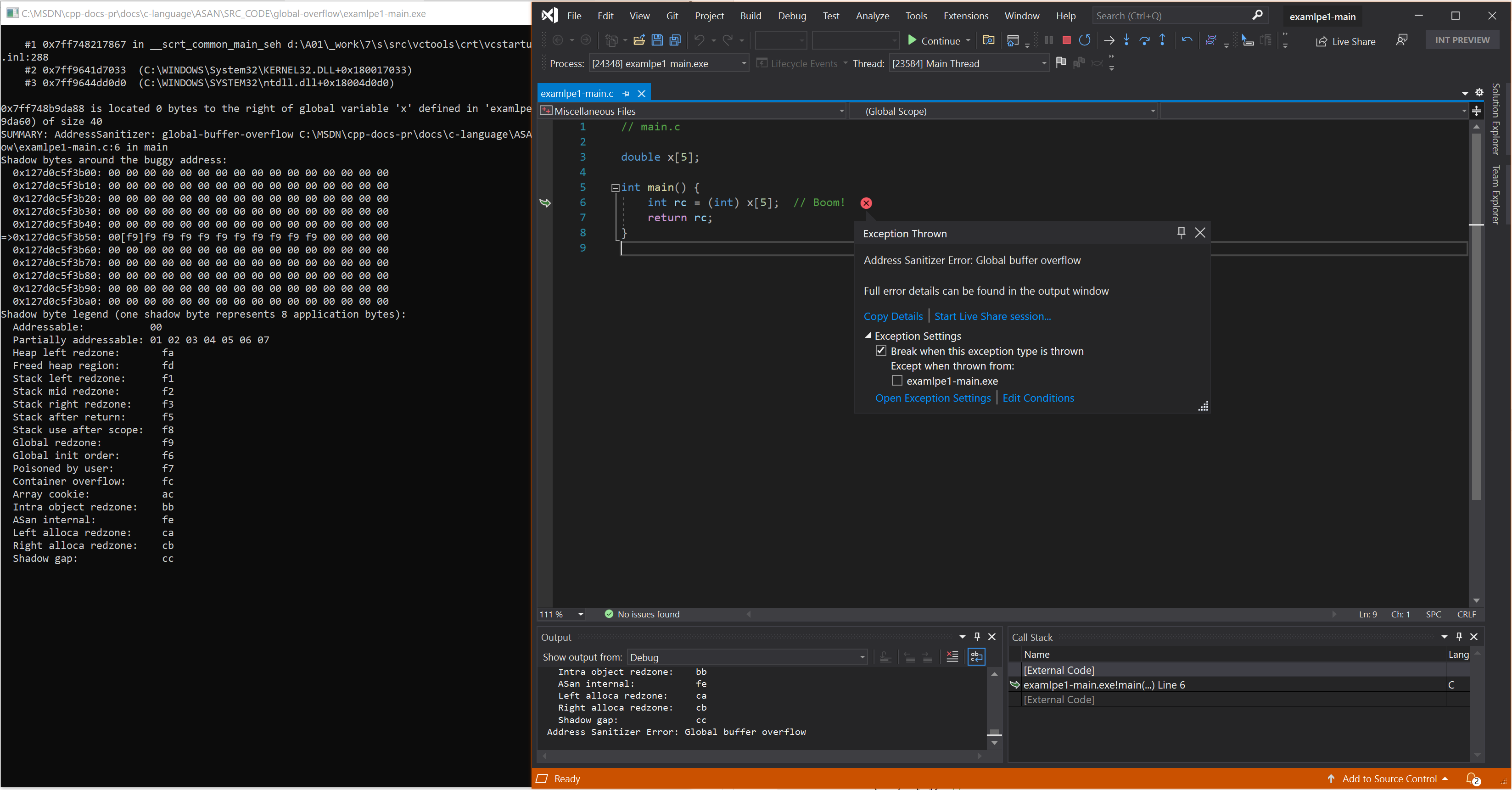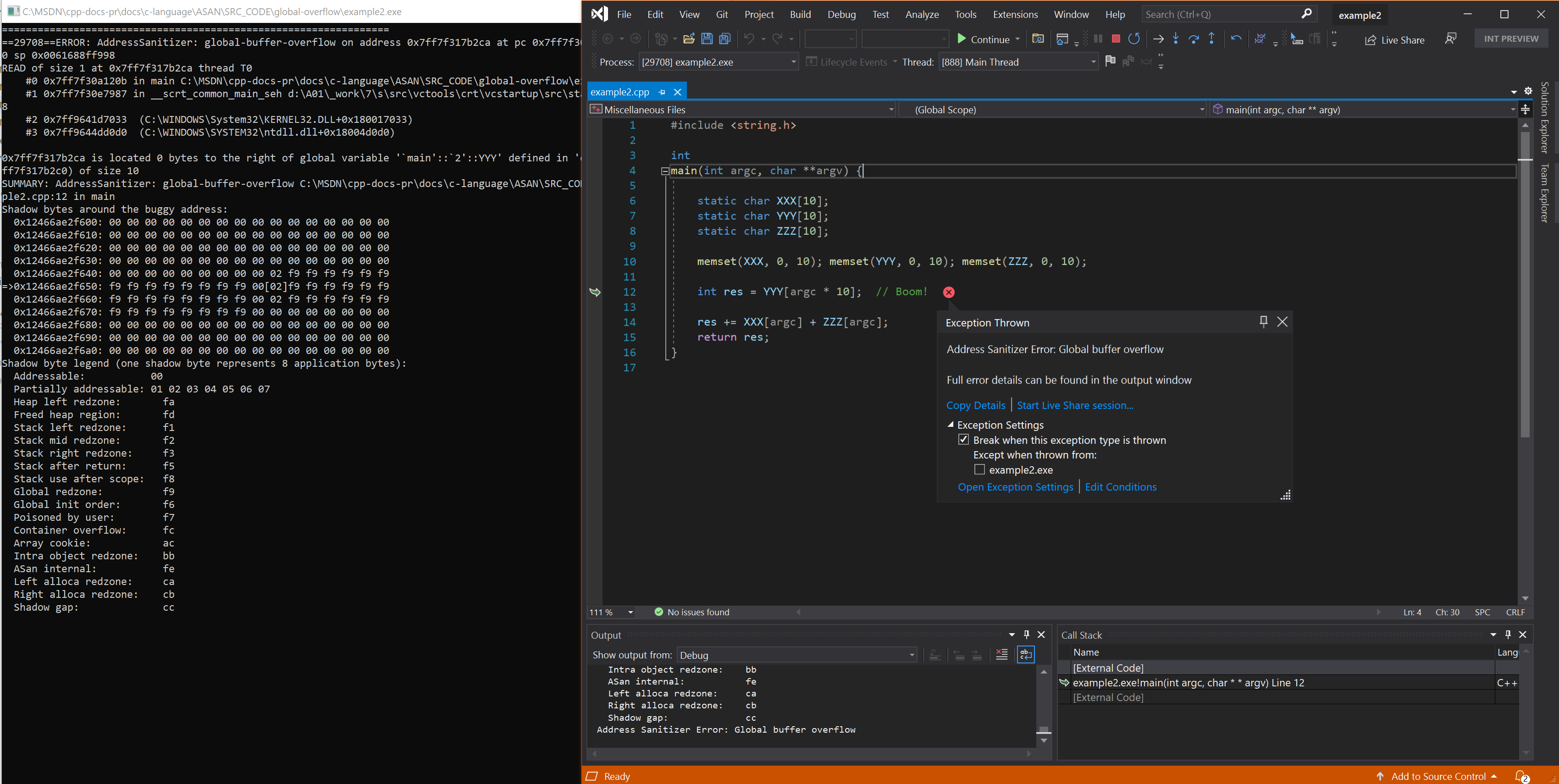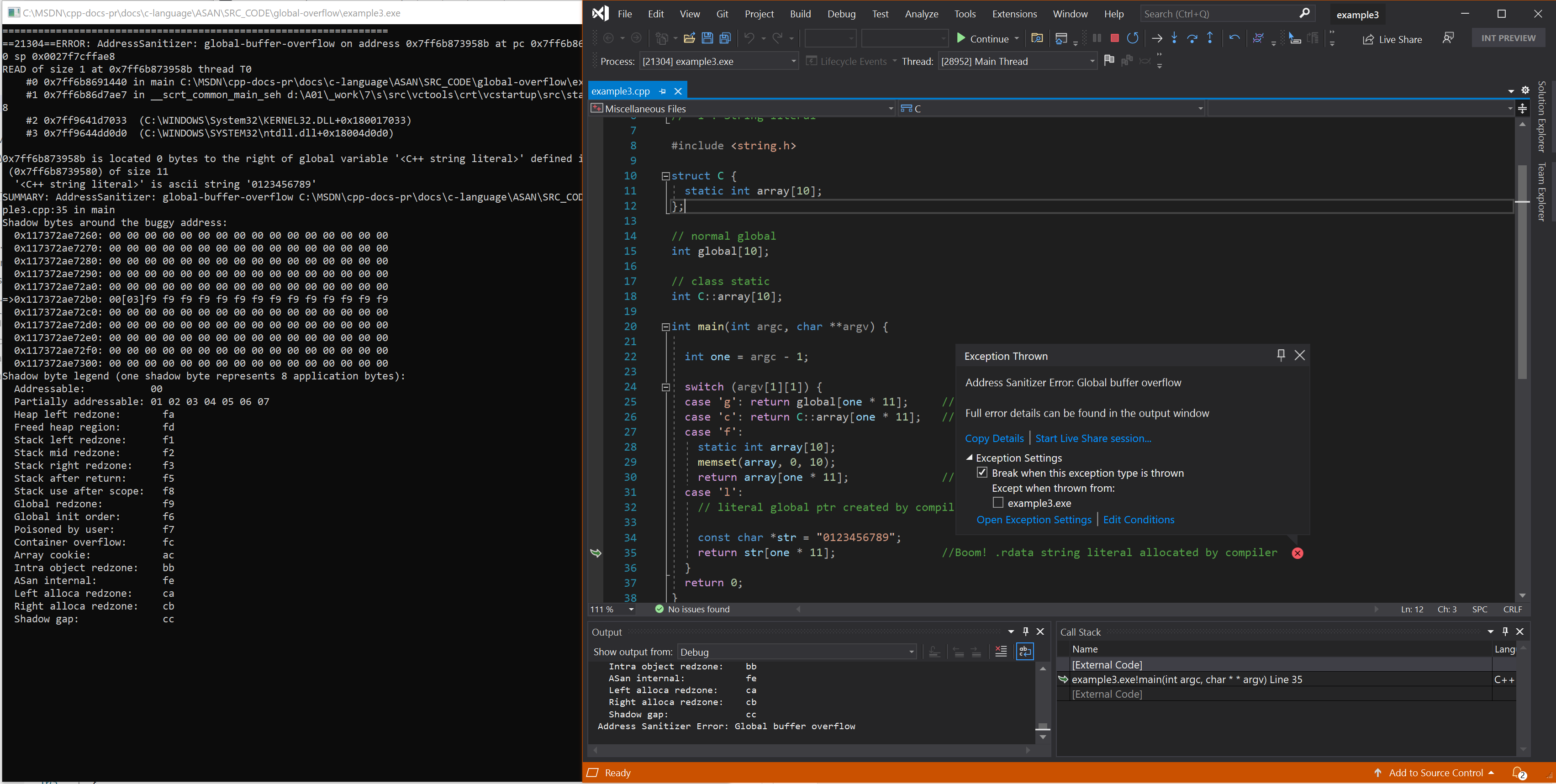エラー: global-buffer-overflow
Address Sanitizer エラー: グローバル バッファー オーバーフロー
コンパイラは、任意の変数のメタデータを .data セクションまたは .bss セクション内に生成します。 これらの変数は、グローバルまたはファイルの静的言語のスコープを持ちます。 これらは、main() が開始される前にメモリに割り当てられます。 C のグローバル変数は、C++ とは大きく異なる方法で処理されます。 この違いは、C をリンクするための複雑なルールが原因です。
C では、グローバル変数はいくつかのソース ファイルで宣言できます。また、各定義は異なる型を持つことができます。 コンパイラは、使用可能なすべての定義を一度に見ることはできませんが、リンカーはできます。 C の場合、リンカーは既定で、すべての異なる宣言から最大サイズの変数を選択します。
C++ では、グローバルはコンパイラによって割り当てられます。 定義は 1 つしか存在できないため、コンパイル時に各定義のサイズがわかっています。
例: 複数の型定義を持つ 'C'' のグローバル
// file: a.c
int x;
// file: b.c
char* x;
// file: c.c
float* x[3];
// file: example1-main.c
// global-buffer-overflow error
// AddressSanitizer reports a buffer overflow at the first line
// in function main() in all cases, REGARDLESS of the order in
// which the object files: a.obj, b.obj, and c.obj are linked.
double x[5];
int main() {
int rc = (int) x[5]; // Boom!
return rc;
}
この例をビルドしてテストするには、Visual Studio 2019 バージョン 16.9 以降の開発者コマンド プロンプトで次のコマンドを実行します。
cl a.c b.c c.c example1-main.c /fsanitize=address /Zi
devenv /debugexe example1-main.exe
結果のエラー

例: 単純な関数レベル静的
// example2.cpp
// global-buffer-overflow error
#include <string.h>
int
main(int argc, char **argv) {
static char XXX[10];
static char YYY[10];
static char ZZZ[10];
memset(XXX, 0, 10); memset(YYY, 0, 10); memset(ZZZ, 0, 10);
int res = YYY[argc * 10]; // Boom!
res += XXX[argc] + ZZZ[argc];
return res;
}
この例をビルドしてテストするには、Visual Studio 2019 バージョン 16.9 以降の開発者コマンド プロンプトで次のコマンドを実行します。
cl example2.cpp /fsanitize=address /Zi
devenv /debugexe example2.exe
生成されたエラー: 単純な関数レベル静的

例: C++ のすべてのグローバル スコープ
// example3.cpp
// global-buffer-overflow error
// Run 4 different ways with the choice of one of these options:
//
// -g : Global
// -c : File static
// -f : Function static
// -l : String literal
#include <string.h>
struct C {
static int array[10];
};
// normal global
int global[10];
// class static
int C::array[10];
int main(int argc, char **argv) {
int one = argc - 1;
switch (argv[1][1]) {
case 'g': return global[one * 11]; //Boom! simple global
case 'c': return C::array[one * 11]; //Boom! class static
case 'f':
{
static int array[10] = {};
return array[one * 11]; //Boom! function static
}
case 'l':
// literal global ptr created by compiler
const char *str = "0123456789";
return str[one * 11]; //Boom! .rdata string literal allocated by compiler
}
return 0;
}
この例をビルドしてテストするには、Visual Studio 2019 バージョン 16.9 以降の開発者コマンド プロンプトで次のコマンドを実行します。
cl example3.cpp /fsanitize=address /Zi
devenv /debugexe example3.exe -l
結果のエラー: C++ のすべてのグローバル スコープ

関連項目
AddressSanitizer の概要
AddressSanitizer の既知の問題
AddressSanitizer のビルドと言語リファレンス
AddressSanitizer ランタイム リファレンス
AddressSanitizer シャドウ バイト
AddressSanitizer クラウドまたは分散テスト
AddressSanitizer デバッガーの統合
AddressSanitizer エラーの例
フィードバック
以下は間もなく提供いたします。2024 年を通じて、コンテンツのフィードバック メカニズムとして GitHub の issue を段階的に廃止し、新しいフィードバック システムに置き換えます。 詳細については、「https://aka.ms/ContentUserFeedback」を参照してください。
フィードバックの送信と表示